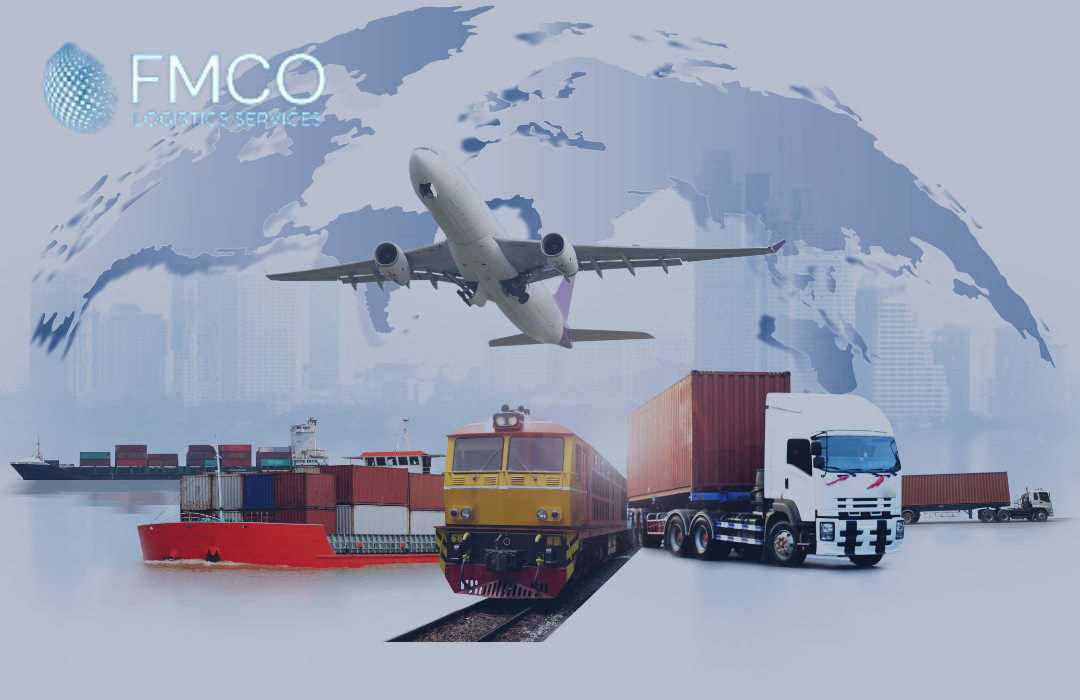Saudi Arabia’s logistics industry is rapidly evolving, positioning itself as a global game-changer. The country plays a pivotal role in international trade, continuously transforming its logistics sector with significant advancements in transportation, technology, and infrastructure. With a strong focus on improving supply chains, Saudi Arabia is investing heavily in logistics to drive economic growth and establish itself as a leading logistics hub.
The Role of Transportation in Saudi Arabia’s Logistics
Efficient transportation is the backbone of any logistics system, ensuring the seamless movement of goods from one location to another. In Saudi Arabia, an advanced transportation network supports domestic and international trade, ensuring cost-effective and timely deliveries. The country is enhancing its logistics infrastructure to facilitate the smooth movement of goods worldwide, making it a key player in global supply chains.
This article explores the latest logistics trends shaping Saudi Arabia’s transportation and supply chain sector.
Key Logistics Trends in Saudi Arabia
1. The Growth of E-Commerce in Logistics
E-commerce has significantly boosted Saudi Arabia’s logistics sector, increasing the demand for parcel delivery services. Online shopping has surged, prompting logistics companies to expand warehousing infrastructure and streamline operations. The growing need for rapid deliveries has led to innovations in last-mile delivery solutions, ensuring customers receive their orders efficiently.
2. Digitalization in Logistics
Saudi Arabia is rapidly adopting digital technologies to optimize logistics operations. The integration of IoT, AI, and data analytics has revolutionized logistics, enabling:
Real-time tracking of shipments
Efficient route optimization for transportation
By leveraging these technologies, shipping companies can provide flexible, reliable, and cost-effective solutions for businesses and customers alike.
3. Sustainability in Logistics
Sustainability is a key focus for Saudi Arabia’s logistics sector, with efforts to reduce carbon emissions and promote green logistics. The industry is investing in:
Electric and alternative fuel vehicles – Reducing urban air pollution and emissions
Hydrogen fuel and CNG-powered transportation – Offering eco-friendly alternatives to traditional fuels
Efficient supply chain strategies – Minimizing environmental impact while maintaining operational effectiveness
Saudi Arabia is actively working toward achieving environmental sustainability in logistics, ensuring a balance between economic growth and ecological responsibility.
4. Vision 2030 and the Future of Logistics
Saudi Arabia’s Vision 2030 is a transformative plan to establish the country as a leading logistics hub. Key objectives include:
Developing a world-class logistics infrastructure
Improving local, regional, and international trade connectivity
Enhancing the ease of doing business
The 2024 Agility Market Logistics Index ranks Saudi Arabia among the top performers in logistics and digital readiness. The country is also ranked 17th in the World Bank’s Logistics Performance Index, reinforcing its commitment to becoming a global logistics leader. Additionally, Saudi Arabia is set to host the Global Logistics Forum in Riyadh, further cementing its position as a powerhouse in the supply chain industry.
5. Transportation Trends in Saudi Arabia’s Logistics
Saudi Arabia’s transportation sector is projected to experience significant growth, especially by 2025. Key developments include:
Air Freight: Expected to be the fastest-growing transportation mode, ensuring quick and efficient delivery of goods.
Road Freight: Currently handling 95% of domestic cargo, making it the dominant transportation method within the country.
Infrastructure Expansion: Investments in roads, ports, and airports to facilitate smoother trade operations and reduce congestion.
These enhancements will strengthen Saudi Arabia’s logistics capabilities, making it a strategic hub for global trade and commerce.
Conclusion
Saudi Arabia’s logistics sector is undergoing a major transformation, driven by digitalization, e-commerce growth, sustainability initiatives, and Vision 2030. As the country continues to expand its logistics infrastructure, it is well on its way to becoming a global leader in supply chain management. With a strong focus on innovation, economic growth, and sustainability, Saudi Arabia is shaping the future of logistics and transportation.
FAQs
How is Vision 2030 shaping Saudi Arabia’s logistics trends?
Vision 2030 aims to position Saudi Arabia as a regional logistics hub by enhancing trade connectivity, improving infrastructure, and streamlining business operations.
What impact has e-commerce had on Saudi Arabia’s logistics sector?
The rise of e-commerce has increased demand for fast delivery services, leading to expanded warehousing, optimized supply chains, and innovative last-mile delivery solutions.
What technologies are transforming logistics in Saudi Arabia?
IoT, AI, and data analytics are enhancing logistics efficiency, route planning, and real-time shipment tracking.
How is sustainability being promoted in Saudi Arabia’s logistics sector?
The logistics industry is adopting electric and alternative fuel vehicles, reducing carbon footprints, and implementing eco-friendly supply chain practices.
What are the primary transportation modes in Saudi Arabia’s logistics sector?
Road freight handles 95% of domestic cargo, while air freight is the fastest-growing mode, ensuring swift global trade operations.
Saudi Arabia’s commitment to technological advancements and sustainable practices is setting a new benchmark in global logistics, making it a key player in the future of the industry.

